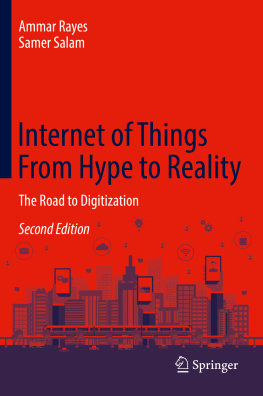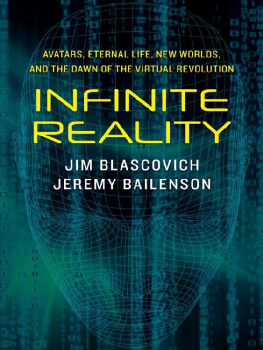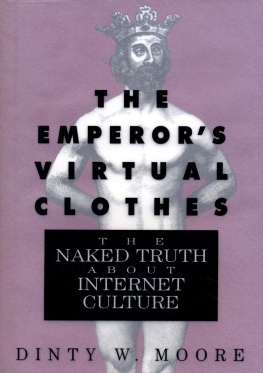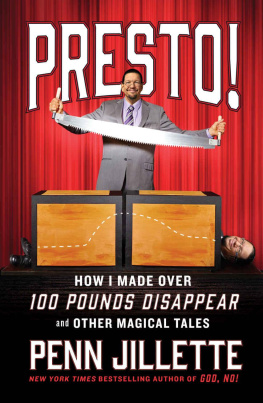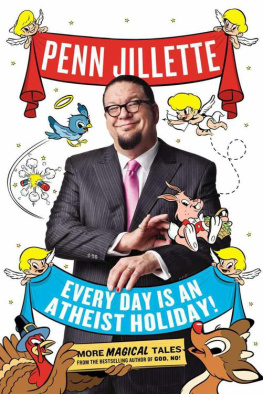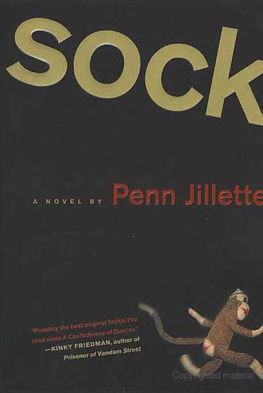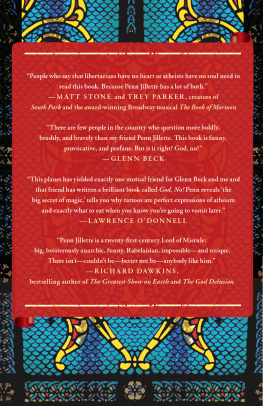Jillette Penn - Being Digital
Here you can read online Jillette Penn - Being Digital full text of the book (entire story) in english for free. Download pdf and epub, get meaning, cover and reviews about this ebook. City: New York, year: 2009;2015, publisher: Vintage Books;Books on Tape, genre: Romance novel. Description of the work, (preface) as well as reviews are available. Best literature library LitArk.com created for fans of good reading and offers a wide selection of genres:
Romance novel
Science fiction
Adventure
Detective
Science
History
Home and family
Prose
Art
Politics
Computer
Non-fiction
Religion
Business
Children
Humor
Choose a favorite category and find really read worthwhile books. Enjoy immersion in the world of imagination, feel the emotions of the characters or learn something new for yourself, make an fascinating discovery.

- Book:Being Digital
- Author:
- Publisher:Vintage Books;Books on Tape
- Genre:
- Year:2009;2015
- City:New York
- Rating:5 / 5
- Favourites:Add to favourites
- Your mark:
- 100
- 1
- 2
- 3
- 4
- 5
Being Digital: summary, description and annotation
We offer to read an annotation, description, summary or preface (depends on what the author of the book "Being Digital" wrote himself). If you haven't found the necessary information about the book — write in the comments, we will try to find it.
Being Digital — read online for free the complete book (whole text) full work
Below is the text of the book, divided by pages. System saving the place of the last page read, allows you to conveniently read the book "Being Digital" online for free, without having to search again every time where you left off. Put a bookmark, and you can go to the page where you finished reading at any time.
Font size:
Interval:
Bookmark:
being digital
Being Digital is an eye-opener and essential reading for anyone remotely connected with the communications industry. And incidentally, its great fun to read.
Arthur C. Clarke
[Offers] profound insight and surprising visions of the digital future.
The New York Times
With the visionary insights of McLuhan, the humor and lucidity of Feynman, Being Digital is the PowerBook for the nineties and beyond. A brilliant, bitwise book.
George Gilder, author of Telecosm
Being Digital brings the endless possibilities of the future into a sharper focus and happily does not require the reader to attend MIT in order to get value from the book.
Rupert Murdoch
Negroponte draws skillfully upon his technical knowledge to put these radical changes in perspective, and does so in a clear, readable style.
Washington Times
Negroponte write[s] in plain English, providing an important, lucid account of our electronic future.
The Sunday Oregonian
Negroponte does a wonderful job in writing a book that offers insights. [His] conversational style is a pleasure to read. [He] has written a landmark book.
South Bend Tribune
being digital
Nicholas Negroponte, Professor of Media Technology at MIT, is also Founding Director of the Media Lab.

FIRST VINTAGE BOOKS EDITION, JANUARY 1996
Copyright 1995 by Nicholas P. Negroponte
All rights reserved under International and Pan-American Copyright Conventions. Published in the United States by Vintage Books, a division of Random House, Inc., New York, and simultaneously in Canada by Random House of Canada Limited, Toronto. Originally published in hardcover in slightly different form by Alfred A. Knopf, Inc., New York, in 1995.
Portions of this work were originally published in slightly different form in Wired magazine.
The Library of Congress has cataloged the Knopf edition as follows:
Negroponte, Nicholas.
Being digital/Nicholas Negroponte.1st ed.
p. cm.
ISBN 0-679-43919-6
1. Digital communicationsSocial aspects.
2. Technology and civilization.
3. Computer networksSocial aspects.
4. Interactive mediaSocial aspects. I. Title.
TK5103.7.N43 1995
303.4833dc20
94-45971
Vintage ISBN 978-0-679-76290-4
eBook ISBN: 978-1-101-91182-2
v3.1
To Elaine
who has put up with my being digital for exactly 11111 years
B eing dyslexic, I dont like to read. As a child I read train timetables instead of the classics, and delighted in making imaginary perfect connections from one obscure town in Europe to another. This fascination gave me an excellent grasp of European geography.
Thirty years later, as director of the MIT Media Lab, I found myself in the middle of a heated national debate about the transfer of technology from U.S. research universities to foreign companies. I was soon summoned to two industry-government meetings, one in Florida and one in California.
At both meetings, Evian water was served in one-liter glass bottles. Unlike most of the participants, I knew exactly where Evian was from my timetables. Evian, France, is more than five hundred miles from the Atlantic Ocean. Those heavy glass bottles had to traverse almost one-third of Europe, cross the Atlantic, and, in the case of California, travel an additional three thousand miles.
So here we were discussing the protection of the American computer industry and our electronic competitiveness, when we seemingly could not even provide American water at an American conference.
Today, I see my Evian story not so much being about French mineral water versus American, but illustrating the fundamental difference between atoms and bits. World trade has traditionally consisted of exchanging atoms. In the case of Evian water, we were shipping a large, heavy, and inert mass, slowly, painfully, and expensively, across thousands of miles, over a period of many days. When you go through customs you declare your atoms, not your bits. Even digitally recorded music is distributed on plastic CDs, with huge packaging, shipping, and inventory costs.
This is changing rapidly. The methodical movement of recorded music as pieces of plastic, like the slow human handling of most information in the form of books, magazines, newspapers, and videocassettes, is about to become the instantaneous and inexpensive transfer of electronic data that move at the speed of light. In this form, the information can become universally accessible. Thomas Jefferson advanced the concept of libraries and the right to check out a book free of charge. But this great forefather never considered the likelihood that 20 million people might access a digital library electronically and withdraw its contents at no cost.
The change from atoms to bits is irrevocable and unstoppable.
Why now? Because the change is also exponentialsmall differences of yesterday can have suddenly shocking consequences tomorrow.
Did you ever know the childhood conundrum of working for a penny a day for a month, but doubling your salary each day? If you started this wonderful pay scheme on New Years Day, you would be earning more than $10 million per day on the last day of January. This is the part most people remember. What we do not realize is that, using the same scheme, we would earn only about $1.3 million if January were three days shorter (i.e., February). Put another way, your cumulative income for that whole month of February would be roughly $2.6 million, instead of the $21 million you earned in total during January. When an effect is exponential, those last three days mean a lot! We are approaching those last three days in the spread of computing and digital telecommunications.
In the same exponential fashion, computers are moving into our daily lives: 35 percent of American families and 50 percent of American teenagers have a personal computer at home; 30 million people are estimated to be on the Internet; 65 percent of new computers sold worldwide in 1994 were for the home; and 90 percent of those to be sold this year are expected to have modems or CD-ROM drives. These numbers do not even include the fifty microprocessors in the average 1995 automobile, or the microprocessors in your toaster, thermostat, answering machine, CD player, and greeting cards. And if I am wrong about any of the numbers above, just wait a minute.
And the rate at which these numbers are growing is astonishing. The use of one computer program, a browser for the Internet called Mosaic, grew 11 percent per week between February and December 1993. The population of the Internet itself is now increasing at 10 percent per month. If this rate of growth were to continue (quite impossibly), the total number of Internet users would exceed the population of the world by 2003.
Some people worry about the social divide between the information-rich and the information-poor, the haves and the have-nots, the First and the Third Worlds. But the real cultural divide is going to be generational. When I meet an adult who tells me he has discovered CD-ROM, I can guess that he has a child between five and ten years old. When I meet someone who tells me she has discovered America Online, there is probably a teenager in her house. One is an electronic book, the other a socializing medium. Both are being taken for granted by children the same way adults dont think about air (until it is missing).
Font size:
Interval:
Bookmark:
Similar books «Being Digital»
Look at similar books to Being Digital. We have selected literature similar in name and meaning in the hope of providing readers with more options to find new, interesting, not yet read works.
Discussion, reviews of the book Being Digital and just readers' own opinions. Leave your comments, write what you think about the work, its meaning or the main characters. Specify what exactly you liked and what you didn't like, and why you think so.



